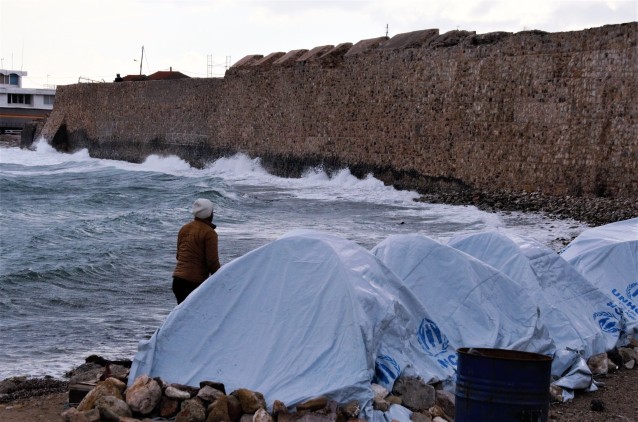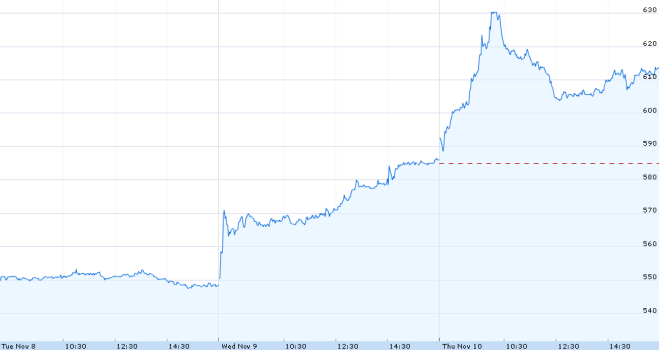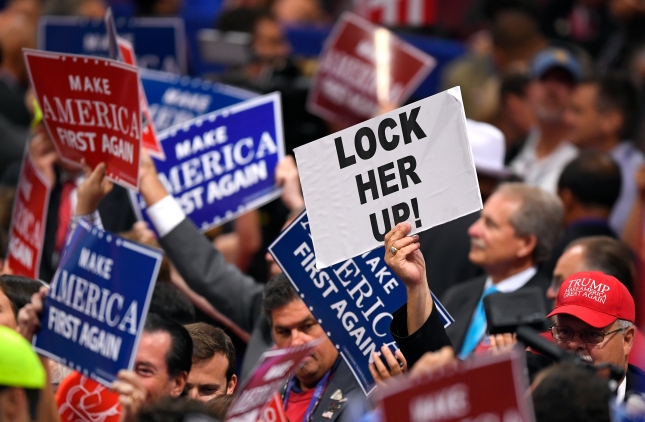In the winter of 2015-16, European governments were in a panic. People from Syria were, after years of war, moving into Europe via Turkey. This was frantically solved by making a barely legal deal with Recep Tayyip Erdogan — “Europe’s harshest collective response to migration since the Geneva refugee convention was signed”, as the Financial Times put it. Since then, Europe’s main problem has been its fear of immigration through Libya to Italy. No matter, Europe’s governments seemed to think, let’s just find our Erdogan down there! Who might it be?
In 2010 that man was Muammar Ghaddafi, and he knew it. He came to Italy warning that Europe might “become black” — but for five billion Euro, he could stop it. The EU was interested. “There is great scope to develop cooperation with Libya on migration,” a Commission spokesman said. It remained but a dream. Within half a year, Ghaddafi had a revolution on his hands. Then he was killed and the Libyan state disintegrated and we had nobody to make deals with.
Several attempts were made at reestablishing some authority, all of which failed. In 2015, as Syrians started looking to Germany, there were two governments, countless militias and that disease of failed states, ISIS, scrambling for power, money and loot in Libya.
With backing from the West, an attempt was made at a unity government “of National Accord”, the GNA. It was established in Tunisia (because Libya was too dangerous) and was promptly repudiated by its own parliament. Instead of uniting the competing governments, it was just another contender.
This was no problem for the US, which could finally get someone to order in its airstrikes in Libya, and the EU, which now had someone to pay off to stop free movement into Europe. The Libyan coast guard was coming into being with European training. Eyewitness reports that this coast guard was killing people on boats leaving Libya were brushed aside. It simply showed “that there’s a need for more training and there’s a need for it soon,” an Italian government source told Reuters.
Still, having the newly established GNA in Tunisia made it look ridiculous, as well as illegitimate. Under pressure from its backers, it finally acceded in March 2016 to send its leadership to Tripoli to take charge of some ministries. They were promptly co-opted by the local militias, as detailed by a recent Small Arms Survey report.
A leader in the Nawasi Battalion summed it up: ‘[I]f you control an area, you control the ministries in that area, and you issue the orders there.’
The ministries are of course all in Tripoli, but Tripoli isn’t governed by one group. In fact, it’s governed by a “cartel” of four militias, which the report helpfully maps out geographically:

It is hard to see how any sort of stable governance, oversight or accountability could emanate from this area. What that means for the coast guard is simple and devastating: it operates as a mafia.
Last summer, the Washington Post reported that people “rescued” by the Libyan coast guard had to endure flogging and forced returns to detention centers “where they are starved and often beaten.” UN investigators found that people there were sold into slavery, women as “sex slaves”. (The MSF sends fifty body bags a week to one of these camps and reports routine rape, torture and forced labor there.) The entire operation, from capture at sea to slave auction, seems to be run by an armed gang, of which the coast guard unit is only one part.
These revelations came after the EU had pledged €200 million for border controls in Libya and North Africa generally, including money for the Libyan coast guard, which EU leaders called a key ally. When confronted with these horror stories, an EU spokesperson said (yet again) that better training was the solution, ignoring all the structural factors that make it impossible to guard Libya’s coast safely, especially if people found at sea are to be returned to this stateless warzone.
Other states have been involved in the EU’s effort to stop people moving North. Algeria has swept up foreign people within its borders and driven them into the desert, leaving many of them to die in the scorching heat. The mass expulsions “have picked up since October 2017, as the European Union renewed pressure on North African countries to head off migrants going north to Europe,” the AP reports.
Even moving across the absurd borders drawn through the desert by European colonists is being criminalized. Until now, people have happily wandered over them as if they didn’t exist. Not anymore. Even if you’re a Ghanaian in Mali on your way through Libya to Italy, it’s Brussels that defines your legal status.
This is done by deals such as the €200 million agreement with Sudan, which is about stopping people escaping such places as Eritrea (the “North Korea of Africa”) and Somalia. It doesn’t seem to bother the governments of Europe’s “community of values” that Sudan’s dictator, who gets this money, is wanted by the International Criminal Court for war crimes, crimes against humanity and genocide, or that some of the perpetrators are now his border guards.
As we fund autocrats abroad, we’ve started growing our own. After the Italian election this spring, the far-right racist Matteo Salvini was elevated to the Italian interior ministry, the ministry responsible for Italy’s ports. Salvini had promised his voters to deport half a million undocumented foreigners, an impossible proposition, To make up for its imminent nondelivery, he’s now closed the country’s ports to rescue ships with paperless people on board. This is only the crescendo of a longstanding attack on NGOs that rescue the wrong kind of people.
Salvini wants Europe to leave the drowning people to the tender mercies of the Libyan coast guard. As he said recently:
I thank from the bottom of my heart, both as a minister and as a father, the Libyan coast guard for having saved and taken back 820 migrants, rendering in vain the work of traffickers and averting the intervention of NGO ships.
No words for the at least 200 people who drowned in the three days after his decision. As for the camps, where these “saved” people were brought, the camps now infamous for torture, starvation and slavery? They’re still there, and there is little that the EU seems to be able to do about them. And maybe it doesn’t want to — they are, after all, a fabulous deterrent.













